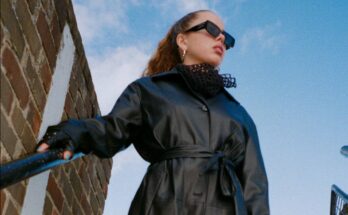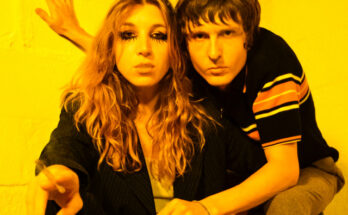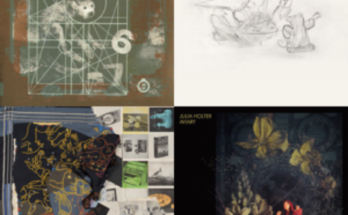Andrew Bird’s got swagger; an old-time Frank Sinatra bada-bing bada-boom flow. But we’re talking indie-folk/pop here, ladies and gents. That string section – all Bird. And that standoffish “my way” attitude – non-existent. Those crooner days are gone, baby. We’re in the era of the singer/songwriter, the one-man-band. And for Bird, it all started at age four with a makeshift violin fashioned from a Cracker Jack box, a ruler, and some fishing line.
Growing up in the suburbs of Chicago, he began to enjoy the makeshift instrument so much that his mother suggested he pursue a little formal training with a real bowed instrument. As part of a “low-pressure, let’s learn how to play” social activity, he started meeting with other neighborhood kids and mothers guided by the principles of the Suzuki method. Based on exposure at a young age, the method alludes to the way a child can easily pick up a second language. Bird explains how crucial the relaxed vibe was, “There can be an immense amount of pressure in the classical world and a lot [of] people burn out … I was glad not be sucked up by that.”
However, this classical-world discipline would start to prod onto his freedom during his college days via Northwestern’s violin performance program. He states with mixed emotions, “To be in music school for four years, immersed everyday and to not have to worry about much else is kind of invaluable … But I didn’t get where I am now by following the rules,” Bird said. “Like, whatever the program was, I wanted to be doing something else really bad.”
He began to rebel against the conservative ways of the school and, “show everyone that there [was] this whole other world besides classical music.”
Orchestra? He wanted nothing to do with it. To Bird, this would mean failure. He illustrates, “So many musicians who went through that program don’t get anywhere because they can’t adapt and they’re stuck in this bottleneck of these French horn players trying to audition for a few symphony jobs around the country … I’m glad I didn’t do what they were asking me to do.”
Therein, the decision was inevitable to start performing his way. He had masterfully trained on his own accord, practicing upwards of eight hours a day, as well as through the technical demands of the school. Bird was on a mission to prove he could make a living as an independent musician.
Chicago became his training ground as he made a name for himself with his trusty violin. He practiced for eight-hour stretches, taught lessons, and played gigs – often in the same day. That said, he managed to burn himself out, ironically, by trying not to fall into the classical rut.
“By the time I was 22, I couldn’t play anymore ’cause I had exhausted my narrow pathways,” Bird said. “So that’s when I actually started writing songs more and putting together a more band-thing with artwork and thinking about the whole package, instead of just being fiddle-boy.”
Bird’s entrance into that upper tier of success has been plagued with this “fiddle-boy” image. As an ’80s era teen, he was spinning pre-war jazz, country blues and even gypsy records as opposed to the more pop-happy artists like the Smiths or the Cure. To date, you can’t pin down his influences simply because he doesn’t have any to place on a pedestal. And when Bird was knee-deep in propelling his career, he happened to get swept up in that whole early ’90s re-emergence of big-band jazz and swing-playing string sections with a group called the Squirrel Nut Zippers.
Realizing it was time to move on and fearing getting typecast as a flash-in-the-pan performer, Bird found an exit with his first solo record Music of Hair and his own subsequent rock-heavy brainchild called Bowl of Fire.
Now 10 releases deep, Andrew Bird has become one of the best indie-folk acts to hit the scene. Branding a reverb-effected professional whistle, which some audience members insist on believing is a pre-recorded wind instrument, Bird will put on a live swagger of a show with looping effects, glockenspiel elements, and timing like you wouldn’t believe, not to mention that wonderful soothing fiddle. His newest record Mysterious Production of Eggs was born on his own recording studio on a northern Illinois family farm, where the curiosity of the origin of his morning’s breakfast produced fifteen tracks, scrapped three times, mind you, of pure string-orchestrated indie genius.
Andrew Bird performs Friday at the Canopy Club.



